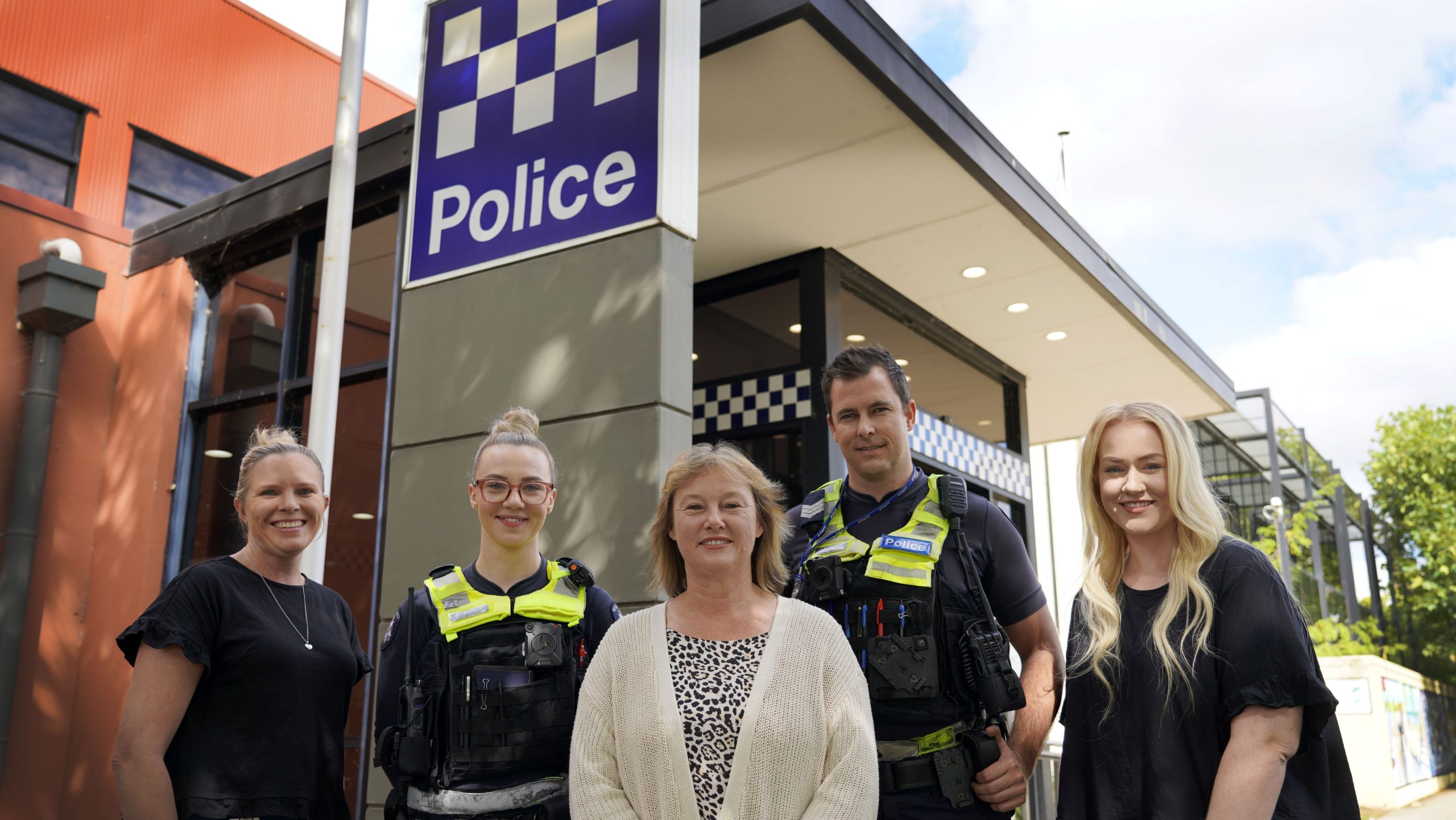A SHINING EXAMPLE OF HOW ORGANISATIONS CAN COME TOGETHER TO IMPROVE HEALTH AND WELLBEING, AN UNLIKELY DUO HAS TEAMED UP TO TREAT MENTAL HEALTH CONDITIONS IN THE GOULBURN VALLEY REGION.
The Shepparton Police and Clinician Emergency Response unit (PACER) is a unique initiative that has been established to assist the community in dealing with mental health crises.
The collaboration between Victoria Police and GV Health means the unsung heroes provide a rapid and effective response to individuals in distress, ensuring they receive the best care possible.
The PACER unit is made up of specially trained police officers and mental health clinicians who work together to respond to emergency situations where a person’s mental health is at risk, including suicide attempts, self-harm or violent behaviour.
GV Health‘s PACER clinician Linda Bryant said the unit allowed patients to be seen in their homes or at the scene instead of being admitted to hospital, alleviating the strain on an already busy Emergency Department and demand for police callouts.
“We try very hard not to use restrictive options in mental health, so it’s a lot easier if people are seen in their homes,” Ms Bryant said.
“People feel more comfortable in their homes so it’s really good to have mental health professionals out in the community rather than being brought into hospital.”
GV Health‘s Acute response team senior clinician Laura Jones said by treating people at the scene, it allowed the patient to be treated quicker and more effectively, creating a better outcome long-term.
“It stops us from unnecessarily taking people to hospital as we go out and complete a home-based mental health assessment and make a decision based on that assessment, on whether or not that person needs inpatient care, no care or community follow-up care,” she said.
The team is equipped with the necessary tools to de-escalate situations and provide support to those in need.
One of the major benefits of the PACER unit is that it reduces the reliance on police officers to handle mental health crises.
Acting Sergeant Ian Fulton said PACER was necessary in situations where a police presence could become intimidating for someone in a mental health crisis.
He said by working together with mental health clinicians, they could provide a more effective and compassionate response to those in need.
“I think it’s great because it puts a civilian face on the police but it’s also good to able to be there as security for clinicians so a patient can get their mental health needs straight away instead of waiting at ED.”
The PACER unit is a positive step towards addressing the growing mental health crisis in the Greater Shepparton region, however due to funding, it only runs six days per week, from 1pm to 9pm.
“We are very excited that we are trialling a Saturday shift because originally there was not enough money brought through to run PACER seven days a week despite great results from Pacer,” Ms Bryant said.
According to the 2021 census, 10.1 per cent of the City of Greater Shepparton experience mental health conditions long-term.
Senior Constable Bridie Bremner said it was imperative the unit ran seven days a week to align with the rise in these statistics.
“If a van is called for a mental health job in the morning, it’s just police dealing with the situation, which means we haven’t got anyone who’s specialised in mental health unless we take them to hospital,” she said.
“It’s all the time and it’s everywhere and you just can’t tell what time of day someone’s going to need a mental health clinician.”
The success of the PACER program has been widely recognised by the community and has even been praised by the Victorian Government.
The model has been so successful that the team is advocating for a PACER south of the current PACER catchment area.
“People are being brought all the way up to the Shepparton hospital, which can be an hour to an hour-and-a-half away, so it’s important that they get seen in their local areas,” Ms Bryant said.
“Often after they have received an assessment, they will say to us, ‘how am I going to get home?’ so if PACER was expanded then 80 per cent of the work might actually stay at home and be treated in their homes.”
By providing a dedicated response team that is trained to handle mental health crises, the PACER unit is helping to ensure that those in need receive the support they require.
It serves as a reminder of the importance of investing in mental health services and the need for collaboration between mental health professionals and law enforcement agencies.
Ms Jones said since working with PACER she had developed a sense of fulfillment within her career.
“People often ask me ‘do you like you job?’ and all I can say is ‘I love my job’.
If this story has raised concerns for you, call Lifeline on 13 11 14 or Beyond Blue1300 224 636.
